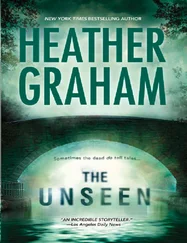The foyer of the Lower School was crowded with children, all jostling against one another to exit. Outside, she saw in her path a group of older boys from the Upper School — some of them so much older that they seemed to her like men, the whole broad-shouldered bunch. They were standing in a group, some of them leaning against the wall of the school, others standing splay-ankled in the middle of the sidewalk. Groups of boys terrified her beyond all measure; typically, if she saw them ahead of her on any walk, she crossed the street to avoid intersecting with them. But she had turned left out of the school doors, and the street was too busy to cross, and to turn around completely would have made her too visible.
She continued, head down, hoping to pass them unnoticed, when she heard her name.
“Ada,” said one of them — she still had her eyes on the ground, and her instinct, really, was to keep going. But then he said it louder.
She was past them already. She clutched her books more tightly to her chest and pivoted slowly on a heel. She could feel a deep, defeating warmth spreading downward from her scalp. She looked up at William Liston.
“Hi,” she said — so quietly that she might as well have mouthed it.
“How was your first day?” The other boys looked at her or away. Two of them continued whatever conversation they were having, uninterested.
“Okay,” she said, trying to produce more volume this time, wondering what anyone else would do or say at this moment. Make a joke, perhaps: some tossed-off line, some little act of self-deprecation or school-deprecation that showed him she belonged.
William Liston paused, as if waiting for more.
“Cool,” he said finally, and then turned back to his group. She understood that she was dismissed. She also understood that something further had been expected of her, a few more conversational twists and turns, and she racked her brain for anything, another word, another phrase, but she was not a native speaker of William’s language, of the language of children.
Suddenly, from behind her, she heard her name again.
“Ada! There you are!” called a voice she recognized instantly as her father’s. She froze.
“And William Liston!” he added. Ada turned around slowly, nervously, and saw David on the opposite sidewalk, wearing the large glasses that had gone out of fashion half a decade before, one half of the collar of his shirt tucked in on itself messily. He did not look to the right before bounding out into the street, and the driver of the car that screeched to a halt in front of him rolled down the car’s window to object.
“All right, all right,” said David, holding up a firm hand in the driver’s direction. “Let’s not overreact.”
Ada had told him she would meet him at the lab after school. It had not been the plan for him to come here. All around her, she could hear a ceasing of conversation as her classmates stopped to watch the spectacle of David, his clothing flapping in ways she had never before noticed, his thin frame jangling along, elbows sticking out at odd angles.
He reached the sidewalk and waved brightly to William, calling out his name once more, telling him hello.
“Hey,” said William. One of his friends turned his back to all of them, presumably to hide his amusement.
“You’re getting very grown, William!” David called brightly, which caused a physical shudder to make its way from the top of Ada’s head to her shins. Then he put one hand on her shoulder.
“Was it terrible?” he asked her, too loudly.
Ada shook her head no. Her voice was still lost.
“Well, how was it? And where’s your briefcase, my dear?” David said.
A giggle from someplace to her right. She looked down at the giant stack of books she was carrying in her arms and back up at her father.
“I lost it,” she said slowly.
He regarded her. In his gaze she saw that he knew what she had done, the intentionality with which she had misplaced the thing, and it shamed her: he would not have cared what anyone said, she thought. And she told herself that perhaps she was not so like him after all — that perhaps she lacked the best parts, the noblest parts, of David.
“How on earth does one lose a briefcase?” David said at last, and then at last he turned and walked toward home, and Ada followed. Her ears burned at the rumble, behind her, of a dozen conversations that resumed, in hushed tones, with more urgency, and the low sounds of laughter that followed.
That night, as she fell asleep, she thought about William, the great beauty of him, the way his sinews fit together in a neat, finished puzzle. And she pondered, for the first time in her life, the particular flaws of David, which she had never before counted, or even noticed: and she wondered what other people said about him, when she was not there to hear them.
From then on, every day, Ada went to school, sat quietly, spoke to no one, waited for her day to end. She longed for the lab, for her work. When no one was watching she coded on the backs of her book covers, until she was caught. At two-fifteen she burst forth from the front door and walked as quickly as she could, without attracting undue attention, to the T, and then took it to the lab to spend her afternoons there, catching up.
Part of her longing to be there was selfish: the work of the lab engaged her in ways that, she thought, her schoolwork never could. But part of it was out of fear, for David’s work was beginning to falter. Now she took copious notes on everything he was tasked with doing. She had always attended meetings alongside him when she felt like it, but now she made a point to, jotting down items as if she were his secretary, his personal assistant.
Quietly, she asked him questions, tried to jog his memory, tried to help him keep up with the demands of his position. “Has Frank written the abstract for the JACM article? You should get it in by next week. Did you call McCarren back?”
At night, after quickly completing the homework that Queen of Angels had assigned, she dutifully told ELIXIR about her day, still eager to feel she was being useful to the lab, still relieved, in some way, to unburden herself to something safe. And, at last, she turned to the work that David had assigned her before his decline. He wrote down assignments for her in marble composition books — the names of pieces of music he wanted her to listen to, the names of proofs he wanted her to solve, books, films, pieces of artwork; even wines that he particularly enjoyed — which, he told her, she could save for later in her life.
As she made her way through them she derived a sense of satisfaction that far exceeded any she got from the homework the nuns assigned her. One day she solved, at last, the Sierpinski proof. She shared this with no one. Next she read a biography of FDR and one of Winston Churchill and one of Albert Einstein and one of Isadora Duncan. Then One Hundred Years of Solitude . Then L’Étranger by Camus, in French. Julian of Norwich’s Revelations of Divine Love .
Slowly, and then quickly, David began to seem less and less interested in his research, which had theretofore sustained and engrossed him completely. It was frustrating to him now: to get to the end of a task and not remember the beginning of it; to forget the names of devices and procedures that he used every day. She whispered them to him when she could. But she was not always there to help. And she could tell now that everybody knew.
His colleagues began to look at him with sad and nervous eyes. Only Liston treated him normally, with a sort of brusque, businesslike vigor that Ada appreciated.
In the winter of Ada’s first year in school, he disappeared twice more, both times for several hours, both times denying that he had been gone, or insisting that he had merely gone for a walk. (Where he had gone on his walks, he could not say.)
Читать дальше












